The best NAS for Plex
I test NAS systems extensively, and these are the best Plex NAS servers around.
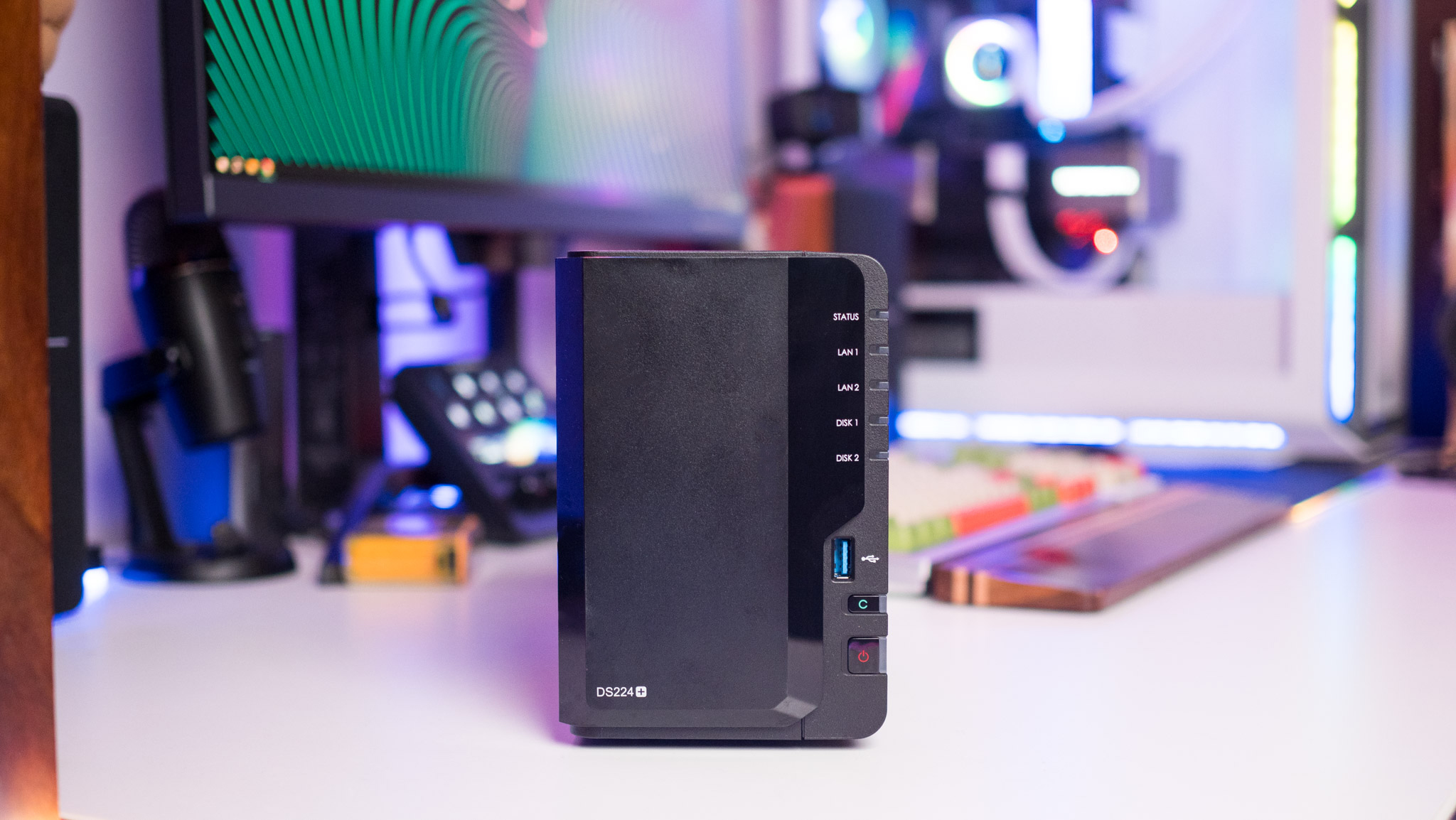
Get the latest news from Android Central, your trusted companion in the world of Android
You are now subscribed
Your newsletter sign-up was successful
Whether you're planning to reorganize your vast media library or level up your storage setup, selecting the best NAS for Plex for you can be easier said than done. Fortunately, I've tested dozens of models over the years and can tell you what you should buy and where each option might need a little improvement.
In case you're unfamiliar, Plex is a terrific platform that lets you manage your media library with ease, and the service has a ton of useful extras when it comes to video playback. The best part is that the Plex client is available on just about every platform, making it straightforward to stream your content on any device — and from anywhere. And you don't need to pay anything to get started. You can do plenty of other things with a NAS, including backing up photos and videos from all of your phones, setting up virtual machines, accessing powerful productivity software that doesn't need any monthly fee, and a whole lot more.

Harish Jonnalagadda is a Senior Editor covering mobile and networking products at Android Central. In addition to testing way too many phones, he is interested in storage servers and networking, having used several dozen NAS models over the last 10 years and managing a 350TB homelab.
Best overall NAS for Plex

Specifications
Reasons to buy
Reasons to avoid
✅ You need a strong Plex server. The DS224+ holds up incredibly well as a media server, and it handles transcodes without too much of a hassle.
✅ You want the best software suite in this category. With robust mobile clients and an exhaustive list of native utilities, the DSM software is unrivaled.
❌You need a NAS server with M.2 connectivity. The DS224+ is great with traditional storage drives, but it doesn't have any M.2 slots.
❌You want multi-Gigabit Ethernet.
If you're new to Plex and just want a NAS that lets you stream your media collection, you should get the DiskStation DS224+. The NAS has two drive bays, is powered by Intel's reliable Celeron J4125 platform, and comes with 2GB of RAM as standard. You get dual Gigabit Ethernet ports, two USB ports, and the design has good passive ventilation along with a 92mm fan at the back that manages thermals well.
That said, the hardware isn't the best you'll find in this segment; you don't get any M.2 drives, and you miss out on multi-Gigabit connectivity. But it's all about achieving the right balance, and the DS224+ definitely manages to do that. Although it misses out on a few things, there are no issues with performance, and for most users, Gigabit Ethernet is still more than adequate.
Where the DS224+ truly shines is its ability as a Plex media server. The NAS has a native Plex client, and configuring it takes less than five minutes. And as it uses an Intel platform, you get hardware-based transcoding — if you have Plex Pass. Most users don't need to transcode content, but if you want to share your Plex library and have devices that can't play back the content natively, it comes in handy.
I tested Plex extensively on the DS224+, and the NAS does a terrific job playing back high bitrate 4K content without any issues. And if you need the feature, it holds up well with transcodes as well. Another standout feature is the software itself; the DS224+ runs DiskStation Manager (DSM), and it has an extensive suite of utilities that make a genuine difference — you won't get this level of polish with other brands. DSM also has useful mobile apps that let you access your data on the go.
Ultimately, the DS224+ is a powerful server that's a great choice for Plex, and you can't really go wrong with the NAS.
Best 4-bay NAS for Plex
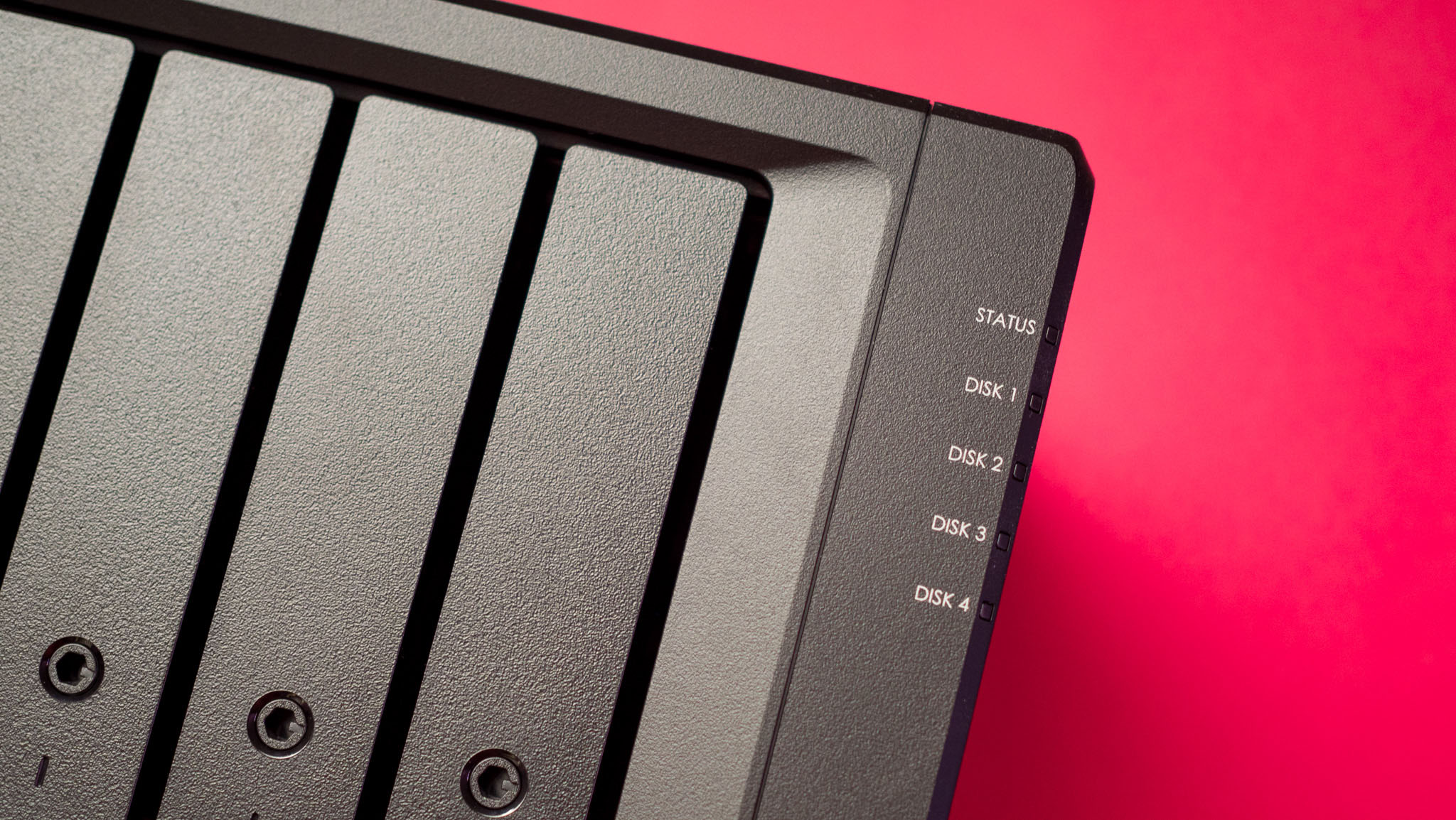
Specifications
Reasons to buy
Reasons to avoid
✅ You want a great Plex media server. With reliable hardware and the ability to store as much data as you need, the DS423+ is a great choice if you need a powerful home media server.
✅ You need two M.2 slots to add fast SSDs down the line in addition to the four traditional drive bays.
❌You want multi-Gigabit connectivity. While it isn't a huge omission, several models in this category now have 2.5GbE as standard.
❌You need to increase the number of drives down the line via eSATA.
The DiskStation DS423+ is nearly identical to the DS224+, and the key difference between the two is that the DS423+ has four drive bays, giving you the ability to house twice as much storage. You also get two M.2 slots on the underside, and that lets you use NVMe SSDs in addition to traditional hard drives.
The rest of the features are identical; the DS423+ uses the same Intel Celeron J4125 as the DS224+, you get 2GB of RAM, dual Gigabit Ethernet ports, and two USB ports. As it is a larger unit, there are two 92mm fans at the back. I would have liked to see at least one multi-Gigabit port — a lot of other 4-bay servers offer it as standard these days — but other than that, the hardware is pretty decent.
As the DS423+ uses the same Intel platform, it handles Plex in much the same fashion as the DS224+. I didn't run into any issues playing back 4K content, and transcoding worked reliably as well. And just like the DS224+, you get the same great feature-set within DSM, allowing you to do so much more in addition to Plex streaming.
If you like the look of the DS224+ but need M.2 slots or additional drive bays, the DiskStation DS423+ is the ideal choice. The DS425+ is launching shortly, and I'll evaluate the NAS after testing it to see if it's a better choice than the existing DS423+. That said, the cost difference alone makes me suggest the DS423+ if you need a 4-bay NAS right now.
Best hardware
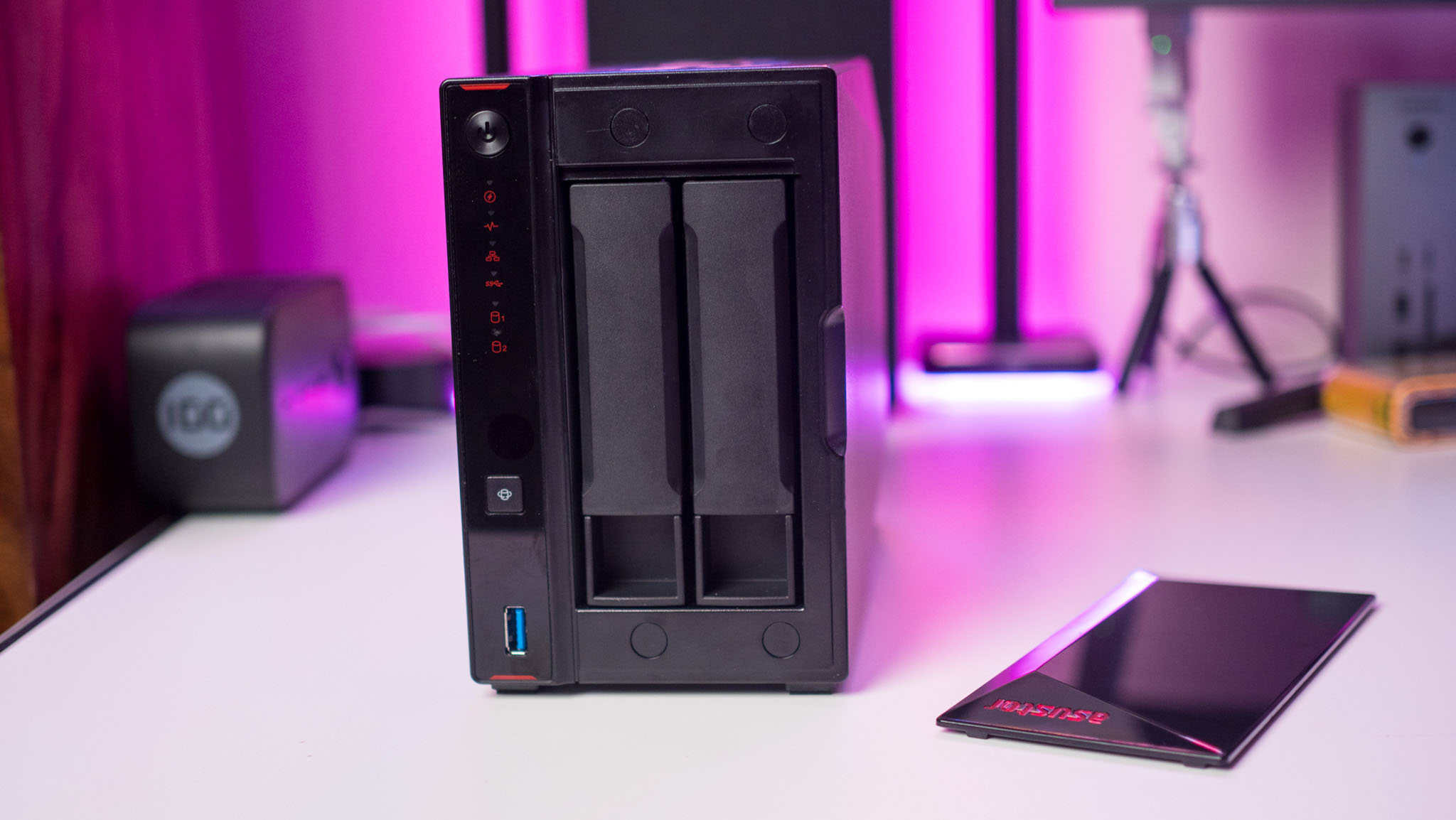
Specifications
Reasons to buy
Reasons to avoid
✅ You need a turbocharged Plex server. With powerful hardware and dual 2.5GbE ports, the AS5402T is a powerhouse, and it is a terrific option if you want a home media server.
✅ You're looking to add plenty of M.2 storage. With four M.2 slots available on the NAS, there's no shortage of connectivity in this regard.
❌You need the best software package. ASUSTOR is doing a better job with the software, but it still needs a bit of polish.
ASUSTOR's AS5402T has the best hardware in its category, and the 2-bay NAS has everything you need in a Plex server. The Intel Celeron J5105 is outstanding in daily use, you get 4GB of RAM, four M.2 slots in total, and dual 2.5GbE ports as standard. Interestingly, there's also an HDMI port at the back that lets you connect the NAS straight to your TV — a good option if you don't want to stream over the network.
Basically, the AS5402T doesn't have anything missing on the hardware front, so if you want multi-Gigabit connectivity and plenty of M.2 bays, the NAS is the way to go. The Celeron J5105 is great at transcodes too, so if you have Plex Pass, you can use hardware transcodes on devices that can't natively play back content.
The ADM software is decent too; you get a native Plex client, containerization, and a ton of useful utilities. The interface isn't quite as polished as DSM, and the mobile clients aren't as refined, but on the whole, ASUSTOR is doing a good job on the software side of things as well.
The AS5402T has better hardware than other 2-bay servers in this segment, so if that is your main consideration, you'll find plenty to like with the NAS.
Best value NAS for Plex
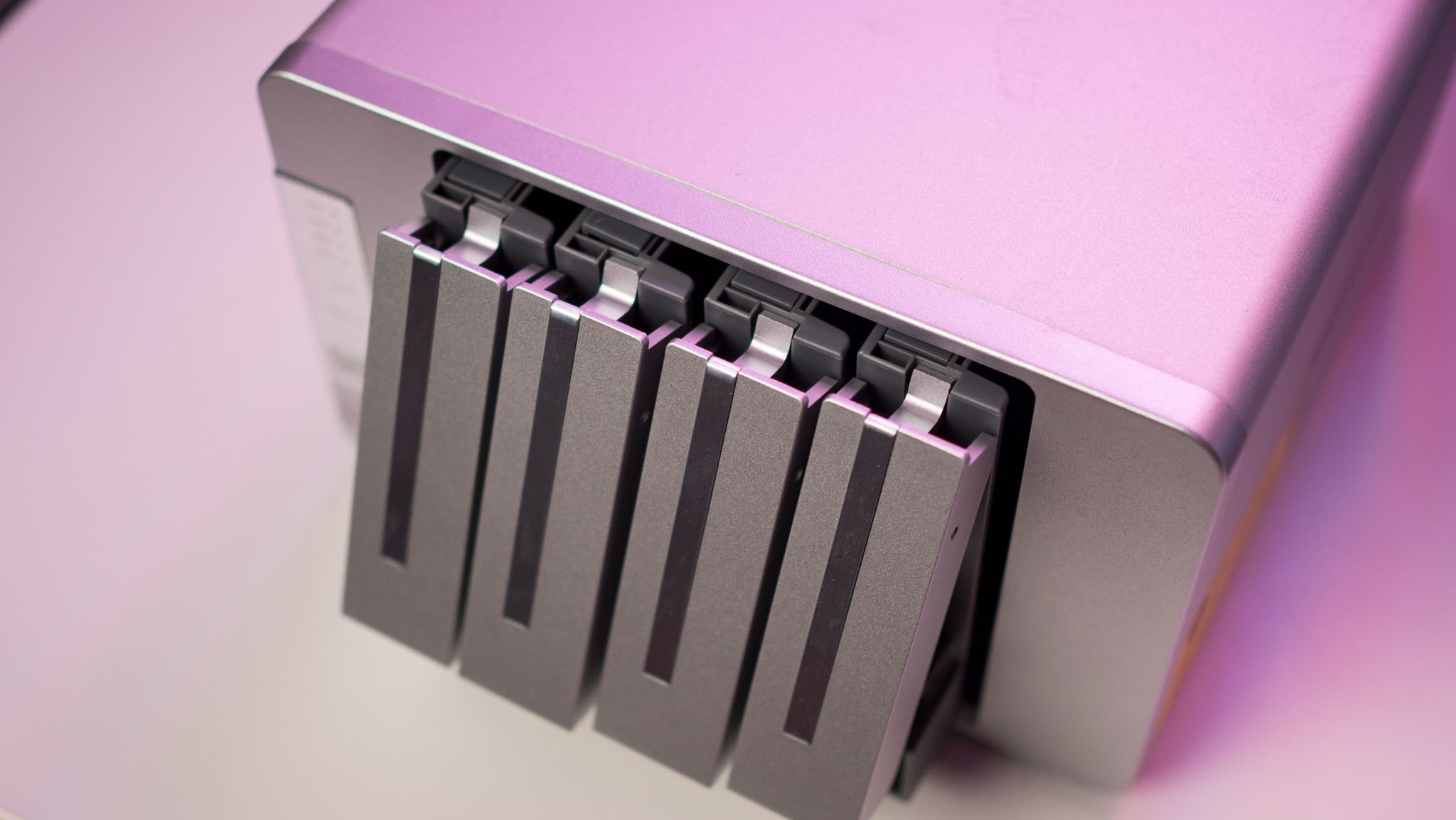
Specifications
Reasons to buy
Reasons to avoid
✅You want a good value. The F4-423 does a great job as a Plex server, and you get plenty of storage — all without having to pay too much cash.
✅ You're need multi-Gigabit connectivity. With 2.5GbE ports and dual M.2 slots, you can easily turn this into a beast of a home media server.
❌You need extensible software. TerraMaster rolled out a new version of its software, but it still doesn't quite have the same extensibility as its rivals.
I've used enough TerraMaster NAS servers over the years to know that the brand prioritizes value, and that's no different with the F4-423. The 4-bay NAS server manages to undercut its rivals by a considerable margin, offering Intel's Celeron N5095, 4GB of RAM, dual 2.5 Gigabit Ethernet ports, HDMI connectivity, and two M.2 slots.
Considering you get all of that at under $400 is a bargain in and of itself, and the NAS holds up incredibly well in daily use. It has a native Plex client, handles 4K content and transcodes without any issues, and the HDMI port lets you connect the NAS to your TV.
TerraMaster's biggest limitation in the past was the software, but that has changed in recent months with the introduction of TOS6. The new interface is cleaner and easier to use, and it has useful features. It still doesn't quite have the same level of polish as other vendors, and the mobile utilities are lacking. That said, you get the basics, and it's clear that TerraMaster is intent on tweaking its software.
So if you want the best bargain out of a Plex server, just get the F4-423.
Best software
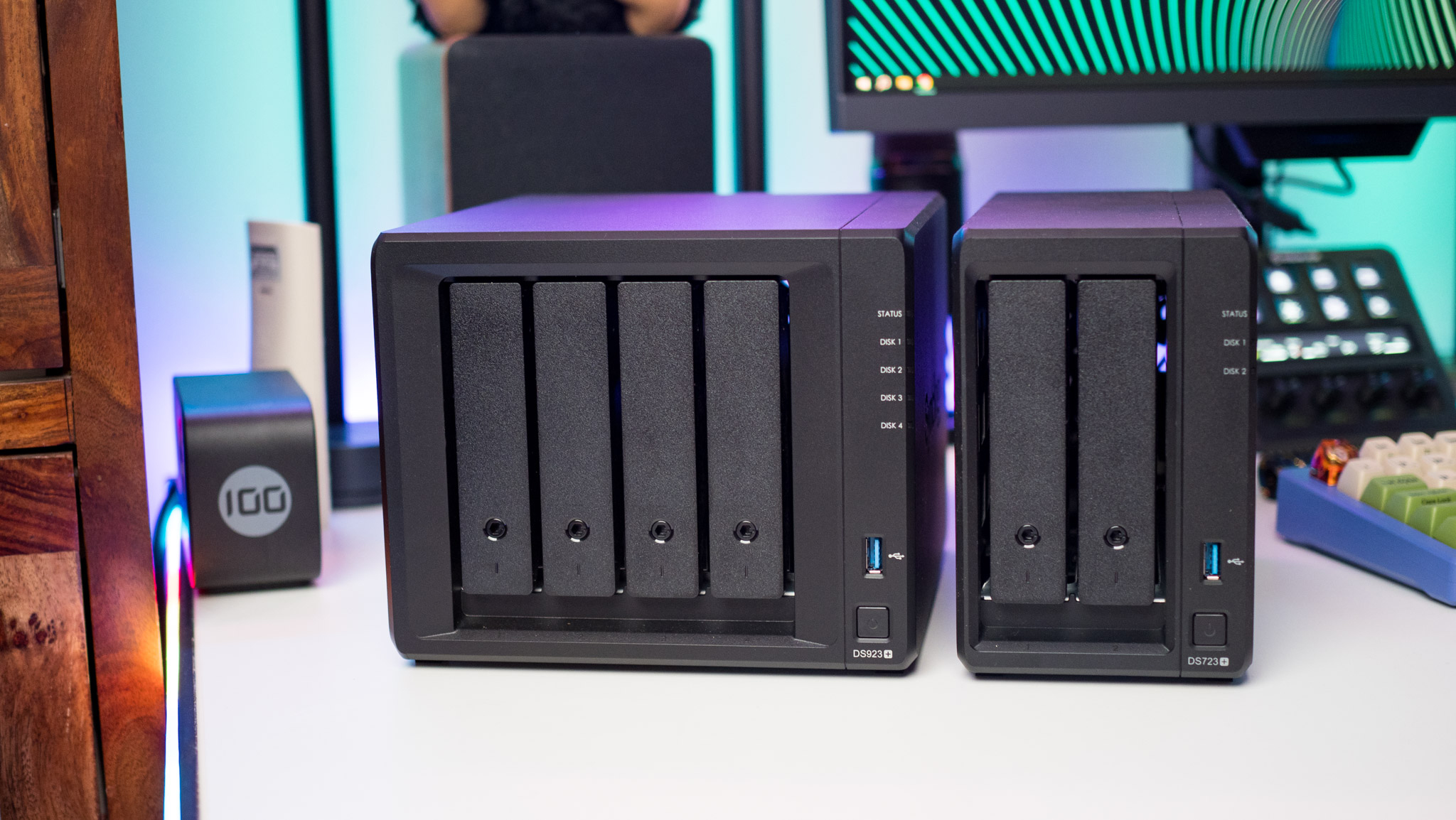
Specifications
Reasons to buy
Reasons to avoid
✅You need a reliable Plex server. The DS923+ is a proven quantity in this category, and it is a standout choice as a media server.
✅You need great software. The DS923+ has all the extras that you need on the software side of things, and with decent built-in memory and plenty of storage, it has a solid foundation.
❌You need transcoding. While the DS923+ does a good job in its own right, it doesn't have the requisite hardware to handle Plex transcoding, so if this is something you absolutely need, you'll need to buy an Intel-powered alternative.
❌You want multi-Gigabit ports. You can add a 10GbE port by buying an accessory, but the NAS comes with dual Ethernet connectivity out of the box.
The DiskStation DS9xx series has always been a best-seller, and the DiskStation DS923+ maintains that streak. Although the DiskStation DS925+ is now available, the NAS has severe limitations around hard drive use, and as I highlighted in my DiskStation DS925+ vs. DS923+ post, the DS923+ is still the better choice.
The NAS uses Ryzen hardware in lieu of Intel, and because it doesn't have an integrated GPU, you lose out on Plex transcoding. So if you absolutely need to use the feature, you should consider the DS423+ instead.
Although most models in this category have 2.5GbE or even 10GbE, the DS923+ is limited to dual Gigabit Ethernet ports. If you want multi-Gigabit connectivity, you'll need to pay another $100 to get a 10GbE network card and slot it into the NAS. So why should you consider the NAS? For starters, the AMD hardware is outstanding; it is noticeably faster in daily use, and that makes the DS923+ better-suited for demanding tasks.
And while you don't get Plex transcodes, the DS923+ is a standout choice for media streaming. It handles Plex playback without any issues whatsoever, doing a great job with high bitrate content across two devices at the same time. The DSM software is the best around, and because you get 4GB of RAM, you can run virtualization tasks and containers with relative ease.
There's also the ability to add more drive bays down the line; the DS923+ has four bays as standard, but you can buy an external housing like the DX517 and connect up to five additional drives to the NAS. It's this extensibility combined with the powerful hardware that gives it an edge over servers like the DS423+.
Best budget NAS for Plex
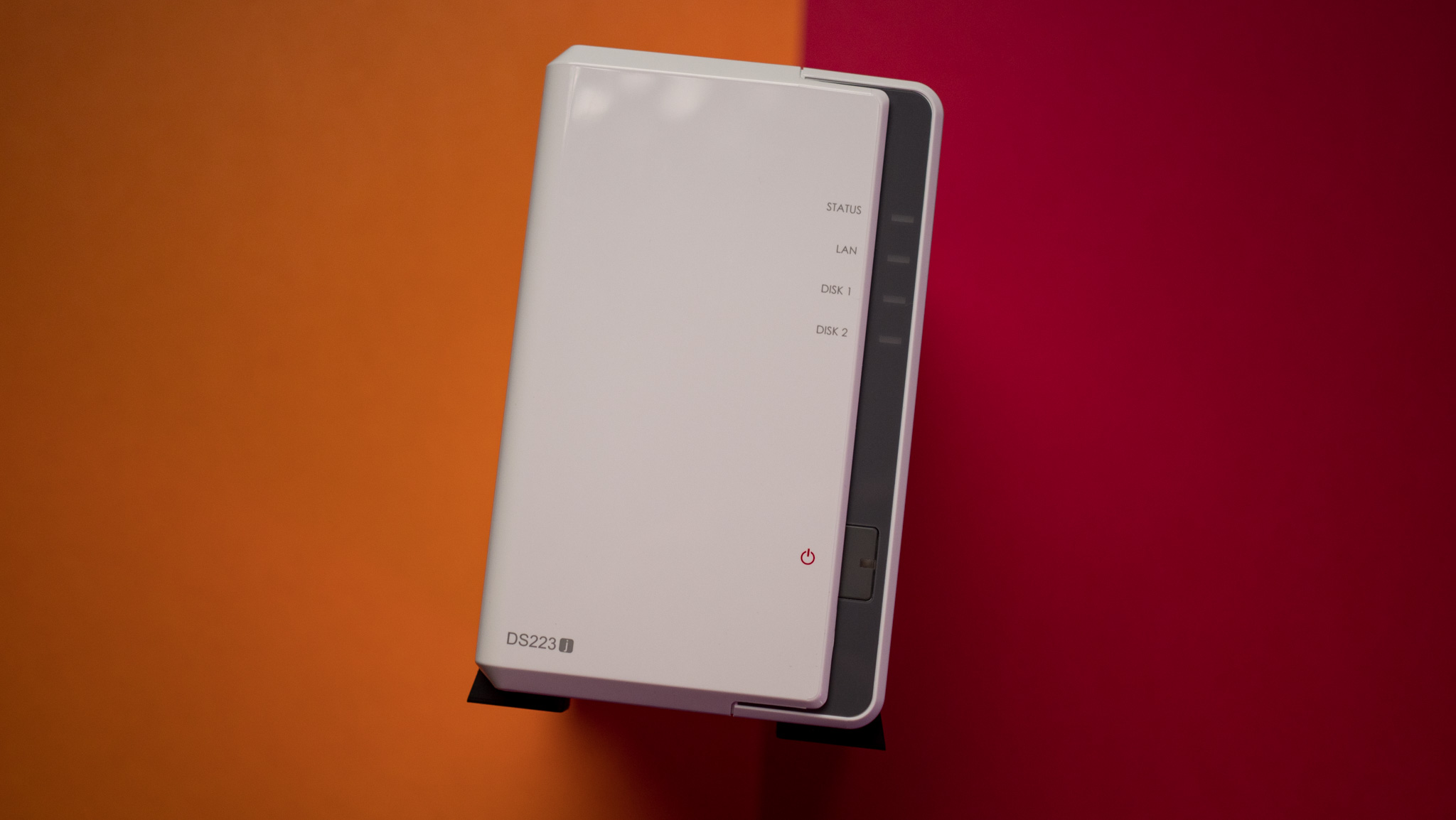
Specifications
Reasons to buy
Reasons to avoid
✅You're just getting started. If you want to see how a NAS holds up in your home environment or if you're curious in the category, the DS223j is a great starting point.
✅You need a budget Plex server. It may not have powerful hardware, but it does a good job at the basics, and it has a native Plex client.
❌You need all the extras. You don't get all the other software features that are standard on the costlier models, but if you just need to stream media, it isn't a problem.
The DiskStation DS223j doesn't have powerful hardware, but it still manages to do a great job when it comes to Plex. You can install the native Plex client and stream content to devices on your home network, but the Realtek hardware doesn't have transcoding.
You may think 1GB of RAM is too low, but it's more than adequate for the DSM software, and it is double that its predecessor — the DiskStation DS220j — offered. As it is an entry-level model, the DS223j doesn't have any upgradability; the RAM modules are soldered, and you can't add multi-Gigabit connectivity.
That said, if you just need an affordable NAS server to store your media collection and back up photos and videos, the DS223j is a good choice to consider. The DSM software is easily the best in this category, and while you don't get the more advanced features, all the basics are covered.
Best NAS for Plex FAQ
What makes Plex such a good media server?
Why you can trust Android Central
As a high-level overview, Plex is a free media server utility that catalogs your media collection and makes it available for streaming on all of the connected devices in your home.
It is often considered to be the best media server around, and there are a few reasons for that. First up is the fact that it's available on just about any ecosystem: Android, iOS, Windows, macOS, Android TV, all streaming dongles, and most smart TVs. Basically, you can install Plex on all the devices you own.
Plex also does a great job with media organization. It sorts your music, movies, and TV shows into relevant categories, and adds high-resolution album art, covers, trailers, and metadata automatically. Also, as the content is streamed locally within your home network, it doesn't count toward your internet bandwidth costs.
What is Plex transcode, and how does it work?
The biggest reason for Plex's dominance has to do with the fact that it can play any file on any device. Plex has a powerful transcoding service baked in, and if you have the paid Plex Pass plan, you can unlock hardware acceleration — that makes a huge difference for transcoding 4K files.
Even if you're using an iPhone, iPad, Amazon tablet, an older smart TV, or an Android phone, you can confidently play your media library on any device without any issues. Plex handles transcodes automatically, so there's no intervention needed from your side — and that makes it a fantastic media streaming service.
Plex streaming generally falls into three categories:
- Direct Play: This is when the Plex client (your TV or streaming box) natively handles the video container and just streams the file as-is without any issues. This uses minimal resources.
- Direct Stream: In this scenario, the client device you're using can play the video and audio streams, but does not work with the container (like .mkv or .m4a), so Plex will copy those streams to a compatible container and send it to your device. This mode uses a few resources, but it isn't demanding on the server.
- Transcode: This is where things get interesting. Plex will transcode files when a client device is unable to play the video or audio streams at all. This is due to the lack of audio or video codecs (like H.265, HEVC, H.264) on the client device, and in this situation Plex converts the video to a file that can be played on the device. This is the most CPU-intensive option and needs a powerful NAS.
How to choose

There are a few things you'll need to pay attention to if you're interested in a Plex NAS.
CPU
This is a key consideration when choosing a Plex NAS, as you'll need a powerful CPU for transcodes. Most servers over $400 meet this criteria, but as a general rule, you'll need a recent Intel chipset — Celeron models are good for home use, but if you're sharing your Plex server with friends and family and need more bandwidth, you'll need to look at servers featuring Intel Core hardware.
While AMD has made inroads into the NAS category , Intel is still king here. If you want the ability to transcode 4K content in Plex, you'll need to buy a NAS server with a recent-gen Intel Celeron or Core CPU.
Memory
Basically, you'll need a decent amount of RAM to make sure there are no bottlenecks. Plex isn't memory-intensive, but if you have a lot of other services running on the NAS, it could become an issue. Generally, 2GB of RAM is the bare minimum in this category, and if you're looking to run a lot of services, I'd suggest getting an 8GB memory module and slotting it in.
Most NAS servers let you upgrade the RAM with ease, so you shouldn't have any issues slotting in 8GB or more memory within the server should you need it.
Connectivity
Most NAS servers have two Gigabit ports as standard, and that should be adequate for home use. But if you're sharing your Plex instance and need additional bandwidth, you should look at a server with 2.5GbE or even 10 Gigabit Ethernet connectivity.
That said, if you switch to a NAS with multi-Gigabit connectivity, you'll need to simultaneously upgrade your switch and router to take full advantage of the additional bandwidth on offer. It isn't as costly as it used to be to switch to a 10GbE home network, but you'll have to take those additional costs into consideration. For now, Gigabit Ethernet is more than adequate for handling a few Plex 4K streams without any issues.
Some NAS models feature an HDMI port that lets you connect the server to a TV or monitor. This is useful as you can then play the media stored on the NAS directly without having to stream it wirelessly on your home network.
What is the best Plex server?
There are plenty of options if you want the best NAS for home use, and you can choose between entry-level picks that have a single or two drive bays, and there are four-bay models that are designed to last.
But if you're in the best Plex server, there are a few additional points to consider. For one thing, Plex transcoding is a very CPU-intensive task, so you will need to look at NAS enclosures that have a powerful chipset. Thankfully, the biggest NAS manufacturers — Synology, QNAP, and ASUSTOR — deliver models catered for Plex media streaming.
Synology's DiskStation DS224+ illustrates this point perfectly — the two-bay NAS server features the Intel Celeron J4125 and handles Plex native streaming as well as transcoding without breaking a sweat.
If you want a little more room, the DiskStation DS423+ has four bays that can hold up to 64TB of storage in total. The rest of the features as the same as the DS224+, but you get two M.2 slots.
Which Plex NAS should you buy?
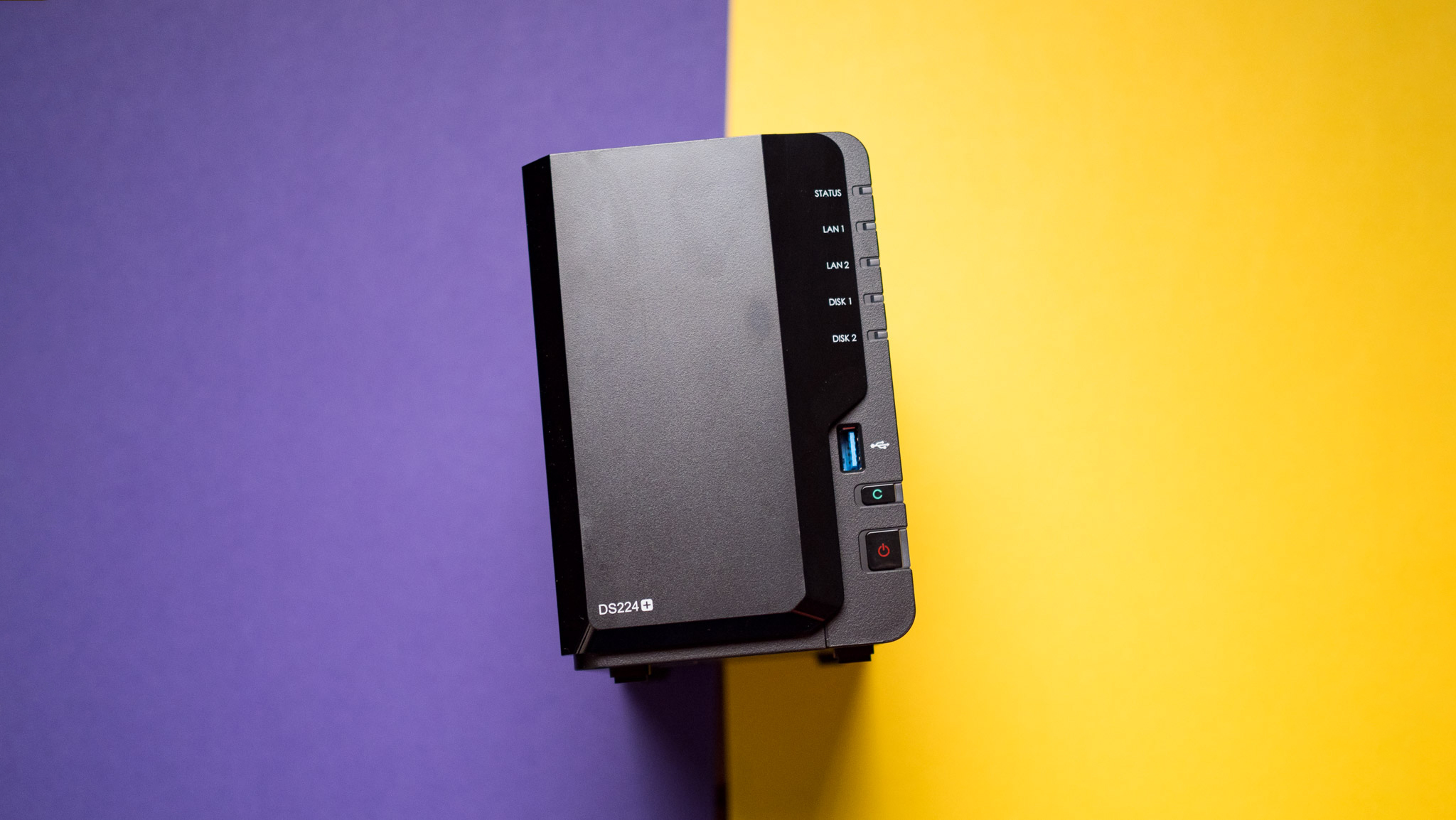
Right now, if you're looking to pick up a NAS for Plex streaming, the best option is the DiskStation DS224+. The upgraded internal hardware makes it an enticing model in this category, and with two Gigabit Ethernet ports and robust software features, the NAS has all the basics covered.
ASUSTOR's AS5402T is a really good contender as well, and it delivers the best hardware package in this segment.
How we test
Our testing methodology for the best Plex server
There are a few things I consider when deciding what NAS servers to recommend for Plex streaming. First up is the CPU; I run a few synthetic tests to determine its performance potential, looking at single and multi-core scores.
Then I set up a native Plex install on the NAS and run multimedia streaming tests to see resource usage in real-world scenarios when streaming 720p, 1080p, and 4K files on the local network.
I also evaluate transcoding potential by streaming a 4K file to a device that doesn't handle the native container — this is a great way to determine if the NAS can handle on-the-fly transcodes for 4K files with high bitrates.
Finally, I look at sequential read/write potential by transferring an image library containing over 5,000 files (all under 1MB), and a dozen media files over 1GB in size.
Ultimately, the best Plex server needs to be able to stream your local media library to all devices on your home network (and over the internet), and it should be able to do so consistently for several years.
All of the NAS models highlighted in this post can do just that, so if you're looking to get your hands on a Plex NAS server, you can go ahead and pick up any models in this list with confidence.
Get the latest news from Android Central, your trusted companion in the world of Android

Harish Jonnalagadda is Android Central's Senior Editor overseeing mobile coverage. In his current role, he leads the site's coverage of Chinese phone brands, networking products, and AV gear. He has been testing phones for over a decade, and has extensive experience in mobile hardware and the global semiconductor industry. Contact him on Twitter at @chunkynerd.
